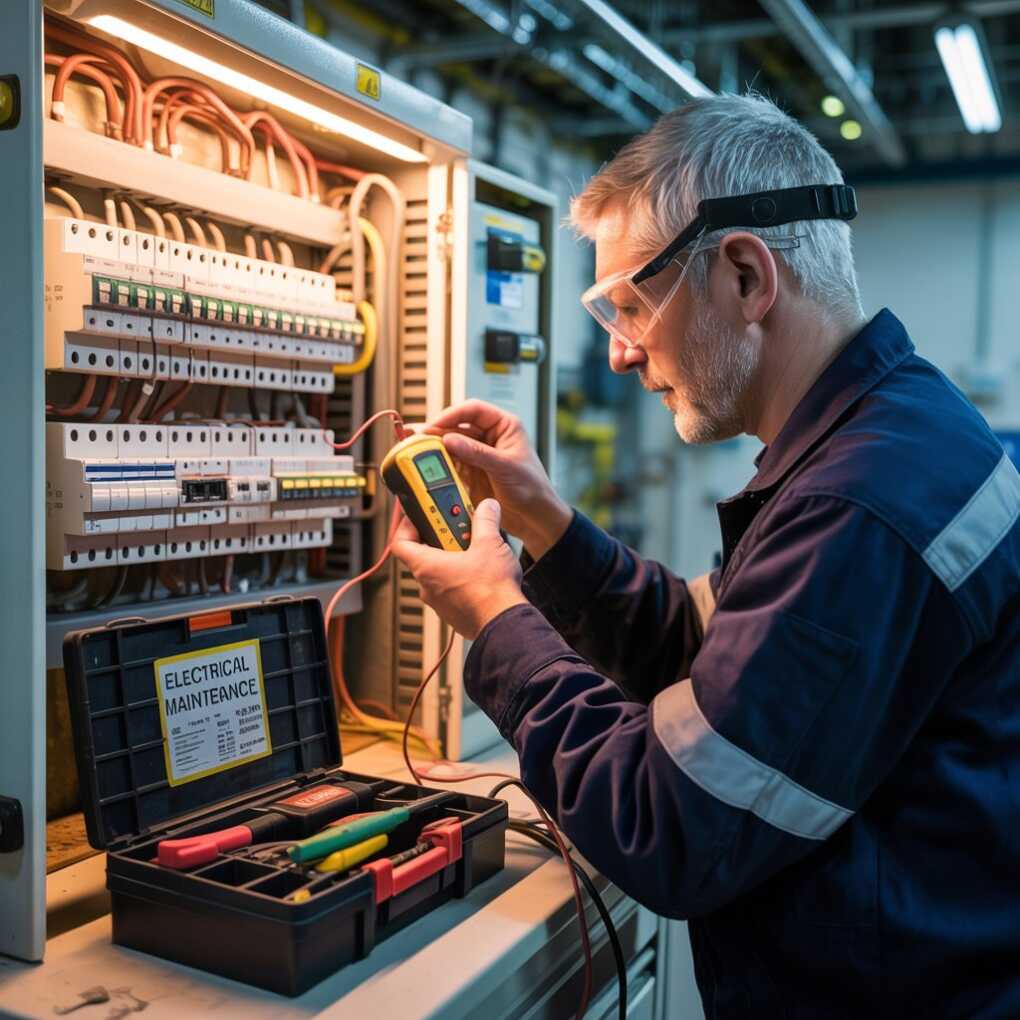Preventative electrical maintenance is crucial in ensuring the safety, efficiency, and longevity of electrical systems in residential and commercial settings. Contractors consistently highlight the importance of addressing potential issues before they escalate into costly or hazardous problems. Through regular inspections and timely interventions, preventative maintenance reduces the risk of electrical failures and supports the smooth operation of daily activities. By keeping electrical components in optimal condition, property owners can avoid unexpected downtimes and extend the service life of their equipment. We will explore why contractors emphasize preventative electrical maintenance and the key benefits of this proactive approach.

The Importance of Preventative Electrical Maintenance According to Contractors
Enhancing Safety and Reducing Risks
Electrical contractors frequently stress that safety is the foremost reason to prioritize preventative electrical maintenance. Insufficient electrical systems can develop faults such as exposed wiring, overloaded circuits, or malfunctioning breakers, all of which present serious fire hazards or risks of electrical shock. Regular maintenance allows contractors to identify and rectify these vulnerabilities early. It is often emphasized that prevention is far more effective and less dangerous than responding to emergencies. Maintaining electrical systems diligently helps protect lives, property, and equipment from the devastating consequences of electrical accidents. This focus on safety aligns with industry regulations and insurance requirements, which often mandate routine checks to minimize risks.
Minimizing Unexpected Downtime and Operational Interruptions
From the contractor’s perspective, unplanned electrical outages can severely disrupt business operations or household activities. Preventative maintenance reduces the chance of sudden failures that might halt productivity or cause inconvenience. Electrical contractors often note that early detection of wear and tear, loose connections, or aging components allows for planned repairs during off-peak times. This approach prevents costly interruptions and keeps systems functioning reliably. Consistent electrical service is essential for businesses to meet deadlines, serve customers, and maintain profitability. By staying ahead of potential breakdowns, preventative maintenance safeguards continuity and reduces the likelihood of emergency repairs that tend to be more expensive and time-consuming.
Extending the Lifespan of Electrical Systems and Equipment
Contractors highlight that electrical installations and machinery represent significant investments. Preventative maintenance ensures these investments are protected and optimized over time. Regular inspections and servicing reduce the strain on electrical components, preventing overheating, corrosion, or deterioration that can shorten their usable life. Maintaining clean, secure connections and functional protective devices contributes to efficient energy flow and reduces the wear on equipment. Property owners avoid premature replacements and costly upgrades by addressing small issues early. Contractors often explain that a well-maintained electrical system performs better and lasts longer, offering greater value and reducing the frequency of major capital expenditures.
Improving Energy Efficiency and Reducing Costs
Another key point contractors make is that preventative electrical maintenance contributes to energy efficiency. Faulty wiring, poor connections, or failing components can cause energy loss, leading to higher utility bills. During routine maintenance, contractors identify inefficiencies such as overheating circuits or malfunctioning switches that waste power. Fixing these problems ensures electrical systems operate smoothly with minimal resistance or leakage. Improved efficiency reduces costs and supports environmental sustainability by lowering energy consumption. Contractors emphasize that small adjustments and repairs can lead to noticeable savings, making preventative maintenance a financially sound decision for both homes and businesses.
Complying with Codes and Insurance Requirements
Contractors often mention that adherence to local electrical codes and standards is critical to preventative maintenance. Regular inspections verify that electrical systems remain compliant with evolving safety regulations. Non-compliance can lead to fines, legal issues, or even denial of insurance claims in the event of an incident. Many insurance policies require documented maintenance records to validate coverage, making preventative maintenance essential for risk management. Contractors help property owners understand the importance of maintaining up-to-date systems that meet all legal requirements. This proactive approach protects owners from potential liabilities and ensures peace of mind.
Facilitating Early Problem Detection and Avoiding Costly Repairs
Preventative maintenance serves as an early warning system, allowing contractors to identify emerging problems before they worsen. Faults like loose connections, worn insulation, or corrosion may initially appear minor but can lead to major failures if left unattended. Contractors explain that timely intervention avoids escalating damage that demands expensive repairs or full component replacements. Preventative visits often include testing and thermal imaging to spot hidden issues not visible to the naked eye. Catching these problems early helps maintain system integrity and prevents the cascading effects of electrical failures. The savings realized through early detection are significant, both financially and operationally.
Contractors emphasize preventative electrical maintenance as a vital practice that ensures safety, reduces operational disruptions, extends equipment life, improves efficiency, complies with legal standards, detects issues early, and facilitates technological updates. This comprehensive approach supports reliable and cost-effective electrical system management.
Conclusion
Preventative electrical maintenance is essential for protecting property, enhancing safety, and optimizing system performance. Contractors consistently encourage property owners to adopt this proactive mindset, focusing on routine inspections and timely repairs. Individuals and businesses can avoid many common electrical problems that lead to costly downtime, hazards, and premature equipment failure. Investing time and resources in preventative care aligns with long-term savings and peace of mind.
